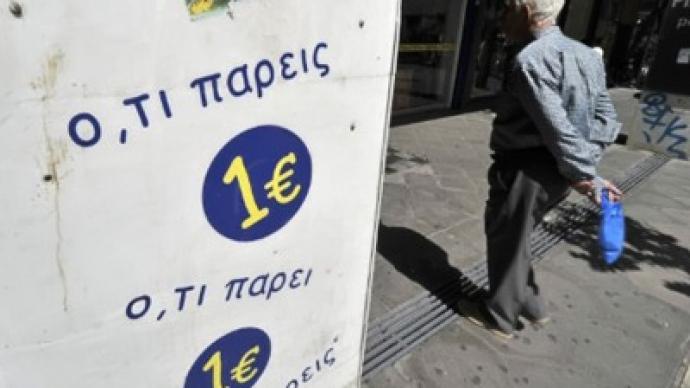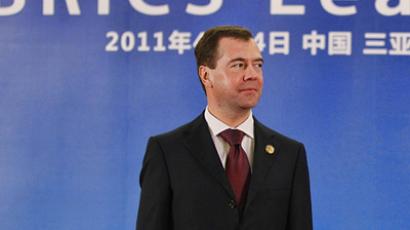“Admittance of Greece and Italy into eurozone was huge mistake” – economist

Despite the president of the European Central Bank Jean-Claude Trichet recently receiving a prize for stabilizing the euro, the currency remains anything but stable, believes author and economist William Engdahl.
Jean-Claude Trichet has received Germany’s prestigious Charlemagne Prize for services to European unity, Deutsche Welle reported on Thursday. According to the prize-giving committee, Trichet symbolizes the solidarity of the eurozone project and the committee praised his contribution to the "the cohesion of the monetary union." However, according to William Engdahl, the euro as a currency is experiencing huge problems. ”The basis of the euro is a misbegotten construct going back to 1999. The admittance of Greece and Italy into the eurozone was a huge political mistake,” he said. “It was done amidst pressure from the banking powers in large international banks from Wall Street, London, and so forth, but as for the basis of stability in the euro, Jean-Claude Trichet has done nothing to enhance that. He simply supervised bailouts for the largest European banks, the French and the German banks, leading among them, who were hugely exposed to the sovereign debts of Greece and other such countries.”The economic situation in Greece remains tense. The EU is currently struggling to come up with another aid package for the country. However, this comes amidst doubts that Greece can ever pay off the first one. The bailouts to ailing banks are not the solution to save Europe’s troubled economies, Engdahl told RT. ”What is not being done is what I call haircuts on the regional bond-holders, the largest banks, Europeans banks and also US banks, the “Gods of money” as I call them in my book, those are the ones that are not being touched,” he said. ”As long as that is the case, you are not going to have any stability,” Engdahl added. “They are just going to ramp up the cost of issuing new debt in Greece and make a killing in the process, while Greece goes down the tube, so this bailout is absolutely a bailout for the banks – and not for Greece as a country.”














